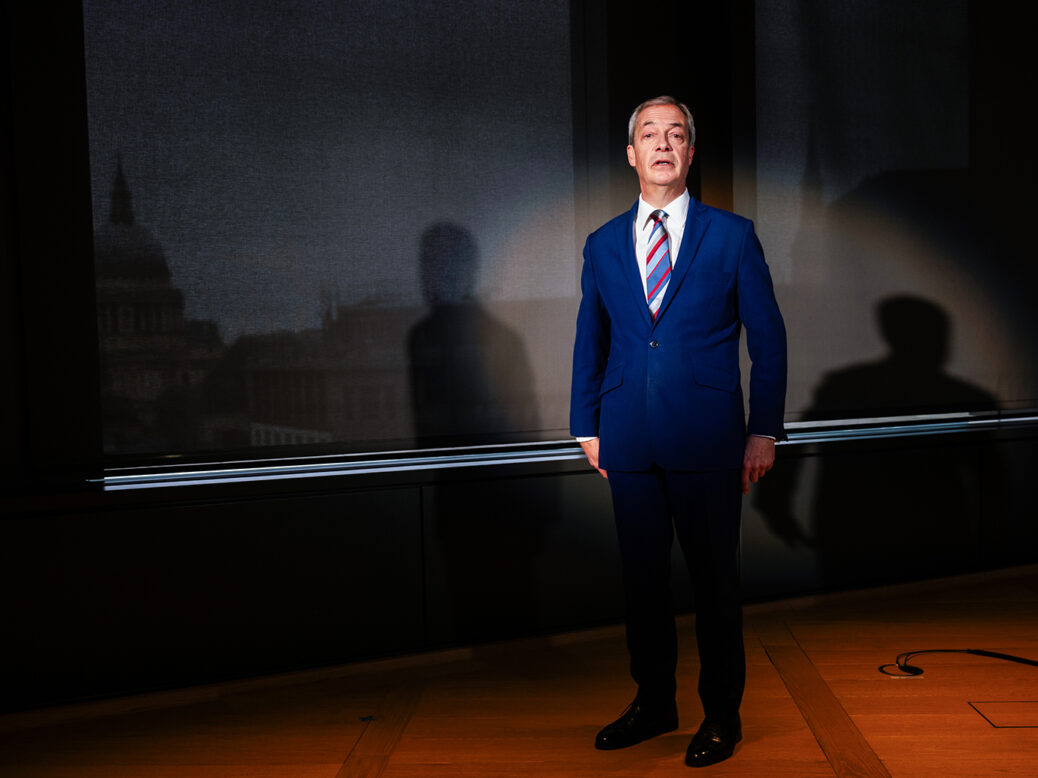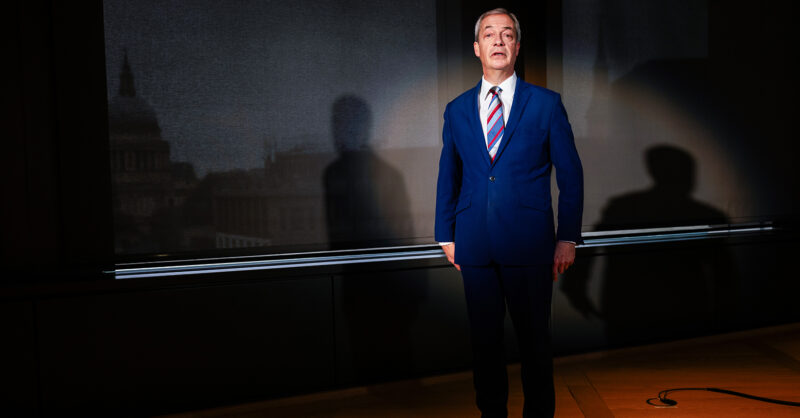
Photo by Jose Sarmento Matos/Bloomberg
Nigel Farage looked a little flummoxed trying to parse the differences between the British and American constitutions, like a trainee barrister thrust in front of the Supreme Court. He was at the House Judiciary Committee for their investigation into the European threat to the free speech of American citizens and companies. But he wasn’t really there for that. He was there as the odds-on next prime minister and a pet favourite of the Maga members of Congress.
When watching politicians from right and left selectively criticise infringements on speech, the thought came readily to mind that politicians are nefarious and cynical custodians of free expression. For most, it’s little more than a political football to kick around in order to serve their own interests. Free speech for their supporters; a knock on the door for their enemies.
JD Vance, for instance, must have missed his encore in Washington after his attack in Munich earlier this year on European and British censorship. Or take Farage himself. Here he was, painting himself as a protector of ancient English freedoms, waging a battle against woke cancel culture in the heart of the imperial capital, when a few months ago he proudly voted to designate Palestine Action a terrorist group even though it led to arrest of those holding signs painted with Private Eye jokes.
But don’t let that get in the way of a good performance. Farage had a little GB News pin on his bright blue lapel, an odd choice given an independent press is a blood relative to free speech. He pinpointed Covid as the authoritarian accelerant which turned Britain into a European North Korea. He broke the suffocating earnestness of Congressional rancour with sarcastic little jibes. There was history here: the committee’s trip to London in July saw Farage reportedly call the Ranking Member Jamie Raskin “pig-headed” and the Democrat replied that such condescension led to 1776. Farage is very much an honorary member of the Maga party.
The Democratic congressional members pushed the line that the hearing was a distraction to the bigger threat to American speech from Trump’s bullying of universities, law firms and the deportation of immigrants who say things the administration dislikes. All true. But many of Washington’s Republicans genuinely look aghast at Europe’s restrictions on speech even as they supinely comply with Trump’s dictates at home.
Despite his Arthurian cosplay, a truth lay among Farage’s self-promotion and amateur legalistic speculation. The day before his appearance, five armed policemen arrested the comedy writer Graham Linehan at Heathrow airport for inciting violence, based on tweets critical of biological men going into female-only spaces. Farage flourished the case at the committee as evidence of Keir Jong-Un’s hellhole. The lack of outcry on the left was more alarming.
The Islamist fatwa against Salman Rushdie used to be the litmus test for whether a leftist actually believed in free speech. We now live in a less respectable age. At least in Britain, defending free speech today rarely means defending a work of literature. Instead it has often lain in the unglamorous task of defending those opposed to mass immigration, the excesses of transgender activists and cancel culture.
Subscribe to The New Statesman today from only £8.99 per month
That was at least until the government’s clampdown on environmental protesters and, more prominently, pro-Palestinian demonstrators. The arrest of supporters of Palestine Action has awoken some sleepy eyes on the left to the state’s rising power to suppress whatever speech it rules to be dangerous. The idea that Starmer is a polite authoritarian has travelled beyond those angry at his purge of the Labour left since becoming leader.
The hypocrisy of using terror legislation to arrest those holding signs painted with satirical jokes and then telling the police to focus on real crime when Linehan was locked up gnaws at the idea that Starmer’s claim to support free speech is anything but political positioning. I suspect he, or at least his advisers, knew that the tweets Linehan posted probably sit within majority opinion.
Starmer seems to believe more in a political conception of “human rights” than older British liberties. If he didn’t, then perhaps he would take action to stop constables scanning the internet. Mark Rowley, the Metropolitan Police chief, said politicians should look at speech laws again after Linehan’s arrest, which poses the question: why so many arrests today when much of the relevant legislation is from 2003 and 1988? Why send five armed officers if he was so concerned about policing speech? Rowley was not as reticent about legislation when he threatened Elon Musk with action last summer over the billionaire’s running commentary on Britain’s riots.
But criticism of Starmer over Palestine on the left has not translated into support for Linehan’s rights. Call it the woke hangover – a fetid ailment that’s hard to shake. Much of the left has intoned the mantra that speech is violence for so long that they habitually clamour for anyone who says something mildly offensive to suffer swift punishment – even by the state. It is not surprising that what started in the culture has wormed its way into politics. Cancel culture now has the insurmountable backing of the state’s monopoly on violence.
Look at Zack Polanski, the new leader of the Green Party who calls himself a left populist. On BBC Newsnight he said his only worry about Linehan’s arrest was that maybe sending the five armed police officers was excessive. But the arrest itself, for Polanski, was bang on, because he and other politicians receive online abuse. The suppression of pro-Palestinians has not made Polanski realise that free speech is only free if it applies to those with whom you disagree. A line from Rosa Luxemburg might be apposite: “freedom is always and exclusively freedom for the one who thinks differently”. Instead, Polanski seems to get a warm buzz at the idea of the state arresting those who offend his sensibilities. Perhaps he is taking his plan to be the Farage of the left a little too literally. Authoritarians to your left and right. Welcome to modern Britain.
The folly with which the left wishes away free speech is ever the more stupid given what might come next. At the hearing, Raskin told British voters “who think this Putin-loving free speech imposter and Trump sycophant will protect freedom in your country, [to] come on over to America and see what Trump and Maga are doing to destroy our freedom”.
Farage left the hearing early to visit his old pal in the Oval Office. That is perhaps more revealing than anything the Reform leader actually said.
[See also: Why Lucy Connolly fascinates the Trump administration]
Content from our partners


